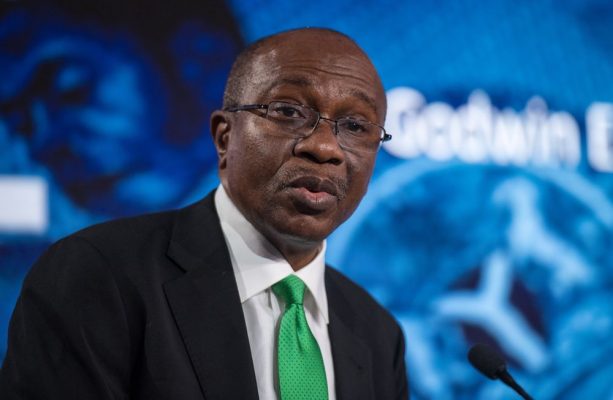
- Governor of Central Bank of Nigeria, Godwin Emefiele The country’s external reserves dipped by $565m from $36.198bn as of February 1, to $35.633bn as of February 15, latest figures from the Central Bank of Nigeria revealed on Wednesday. The reserves which had gained in recent weeks started a downward trend on January 26 on which date it declined to $36.34bn.
Governor of Central Bank of Nigeria, Godwin Emefiele
The country’s external reserves dipped by $565m from $36.198bn as of February 1, to $35.633bn as of February 15, latest figures from the Central Bank of Nigeria revealed on Wednesday.
The reserves which had gained in recent weeks started a downward trend on January 26 on which date it declined to $36.34bn.
Figures obtained from the CBN showed that the reserves, which commenced the year at $35.65bn rose to $36.52bn as of January 25.
At the last Monetary Policy Meeting in January, the Central Bank Governor, Godwin Emefiele, said, “On the external reserves position, the committee noted the increase in the level of external reserves, which stood at $36.23bn as at 21st January, 2021 compared with $34.94bn at the end of November 2020.
“This reflected improvements in crude oil prices, partial global economic recovery amid optimism over the discovery and distributions of COVID-19 vaccines by most developed economies.”
However, the latest monthly economic report of the CBN stated that despite the increase in economic activities globally and positive news of a COVID-19 vaccine, the external reserves declined due to lower foreign exchange receipts and sustained intervention to stabilise the exchange rate.
Consequently, it added, the external reserves fell by 1.7 per cent to $34.97bn at end-November 2020, below the levels of $35.58bn at end-October 2020 and by 9.9 per cent, when compared with $38.8bn at end-November 2019.
This was due, mainly, to increased interventions in the Investors’ and Exporters, SMIS and BDC segments of the foreign exchange market.
The external reserves position could cover 6.7 months of import for goods and services or 8.1 months of import for goods only, using the import figure for 2020 Q3.
Further analysis showed that Nigeria’s reserves per capita decreased to $169.59, compared with $172.60 in October 2020, while Egypt’s reserves per capita increased to $342.36 from $338.92 in October 2020.
Reserve per capita position for South Africa and Angola was $725.49 and $461.32, while their reserve positions were $43.03bn and $15.16bn, respectively, in October 2020.



